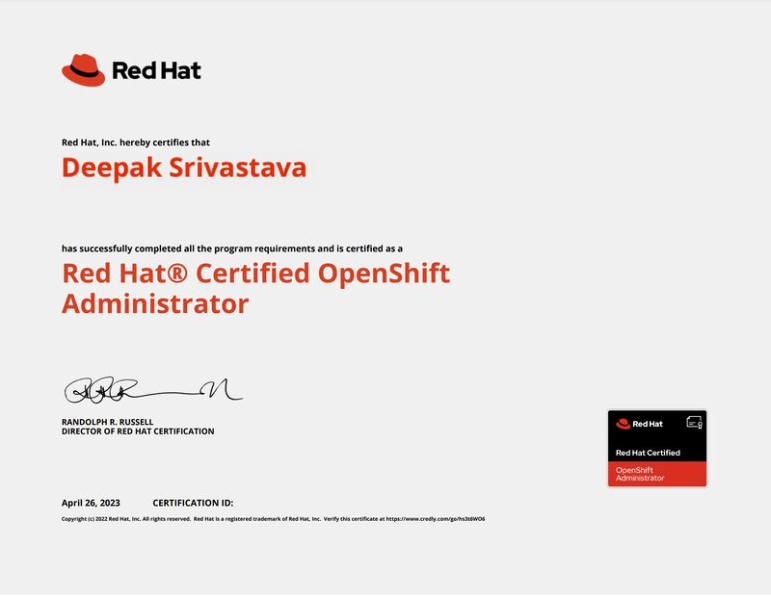Redhat Technologies
EX280: Red Hat OpenShift Administration
Set up, monitor, and resolve issues with containerized apps and OpenShift clusters.
The detailed deployment of applications using Helm, manifests, templates, and Customize is covered in this course. Subjects covered include resource manifest utilization, user authorization, network security, enabling developer self-service, and managing updates for OpenShift clusters and Kubernetes operators. will utilize the stage.
Learn the components of Red Hat OpenShift Container Platform and how they interact.
Control which nodes a pod runs on.
Manage the OpenShift cluster using the web console.
Attend a free demo – Click Here!
System administrators, system architects, and developers who need to introduce and design the Red Hat OpenShift Container Platform are the target audience for this course.
